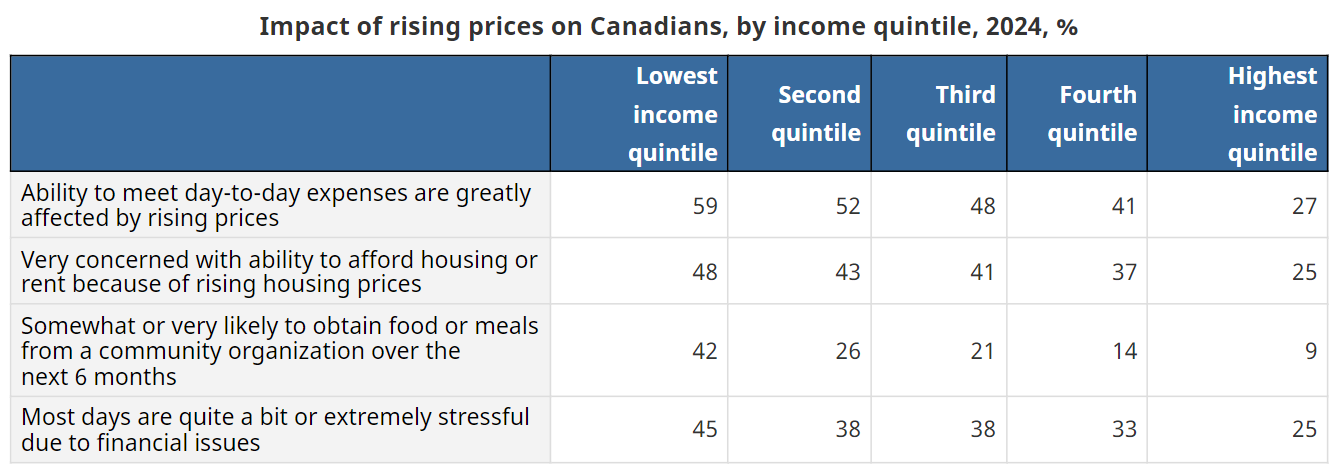
'There was a clear difference in hopefulness across groups experiencing different levels of daily stress due to financial issues,' says StatCan

The number of Canadians who are struggling financially today is bigger than the comparable data recorded when the COVID-19 pandemic was still ongoing, according to a report from Statistics Canada (StatCan).
Overall, 45% of Canadians report that rising prices are greatly affecting their ability to meet day-to-day expenses, 12 percentage points higher than two years earlier (33%).
It was on May 5, 2023 when the World Health Organization (WHO) declared the COVID-19 pandemic to be over.
Amid the rising cost of living, Canadians are struggling to save up for retirement, according to a previous report from Sun Life.
But the financial struggle does not affect people equally, as those who are earning the smallest are the ones most likely to feel the strain from the rising cost of living, according to StatCan’s data, taken from a survey conducted April 19 to June 3, 2024.
While nearly six in 10 (59%) of workers in the lowest income quintile say their ability to meet day-to-day expenses is greatly affected by rising prices, the number drops to 27% among the highest income quintile.
Also, those in the first group are most likely to be very concerned with their ability to afford housing or rent because of rising housing prices (48%), somewhat or very likely to obtain food or meals from a community organization over the next six months (42%) and to say that most days are quite a bit or extremely stressful due to financial issues (45%).
The comparable figures for those belonging to the second group are 25%, 9% and 25%, respectively.

Source: Statistics Canada (StatCan)
A previous report noted that the labour shortage in Canada is over, and it will impact the wage growth rates of Canadian workers in the future.
Canadians with disabilities are also more likely to struggle financially than those without disabilities.
In spring 2024, nearly six in 10 (57%) persons with a disability reported that rising prices are greatly affecting their ability to meet day-to-day expenses compared with about 4 in 10 of those without a disability (43%).
Also, among people who identify as a person with a disability, over 4 in 10 reported being very concerned with housing affordability due to rising prices (43%) and describe most days as quite a bit or very stressful due to financial concerns (45%).
These proportions are higher than those reported by persons without a disability (38% reported being very concerned with housing affordability due to rising prices and 33% described most days as quite a bit or very stressful due to financial concerns).
Regarding rising food costs, just over one-third (34%) of persons with a disability expected that their household would obtain food or meals from a community organization in the next six months compared with about one in five among persons without a disability (21%).
“Financial difficulty is known to influence overall well-being. Among those who described most days as quite a bit or very stressful due to financial issues in spring 2024, about one in five (17%) reported having high life satisfaction compared with nearly three-quarters (70%) of those who reported most days as being not at all or not very stressful,” says StatCan.
“There was a clear difference in hopefulness across groups experiencing different levels of daily stress due to financial issues. In spring 2024, nearly three-quarters (73%) of people who did not report having daily financial stress had a hopeful view of the future compared with just over one-third (35%) of those who found most days quite a bit or extremely stressful due to financial concerns.”
Half of Canadians have nothing saved up for retirement, according to a previous report.